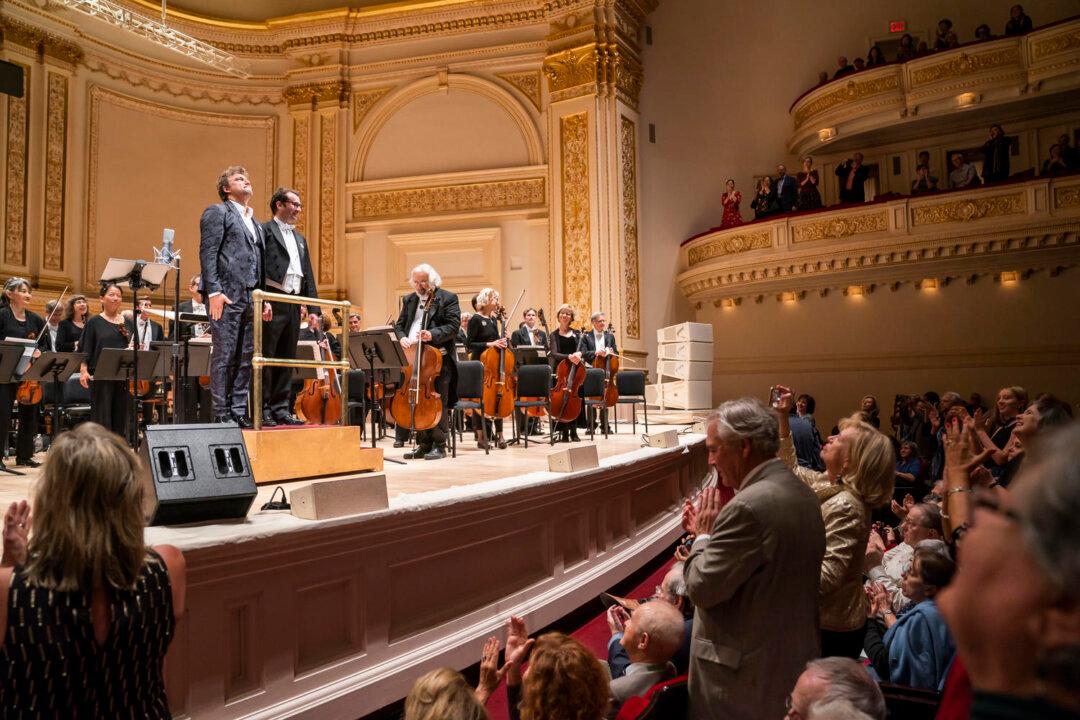NEW YORK—Jonas Kaufmann is generally accompanied by a pianist at his concerts, and the program concentrates on Schubert songs or other classics of German lieder. By contrast, in his latest appearance at Carnegie Hall on Oct. 5, he was accompanied by the Orchestra of St. Luke’s, conducted by Jochen Rieder, and performed German songs from operettas and films of the 1920s and 1930s.
Most of the songs were made famous by three tenors: Richard Tauber, Joseph Schmidt, and Jan Kiepura. The composers were Franz Lehár, Emmerich Kálmán, Robert Stolz, Hans May, and Mischa Spoliansky.






